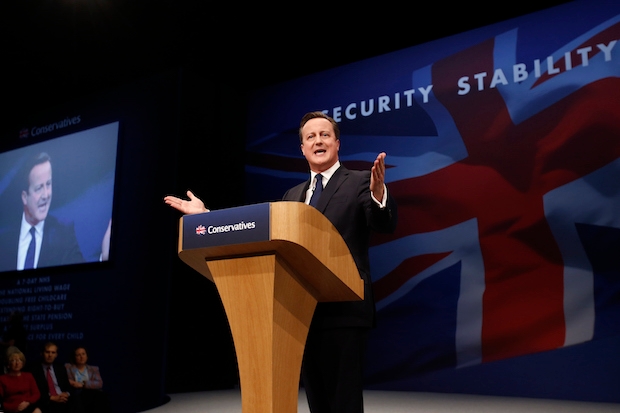David Cameron’s decision to make it clear that he is definitely not ruling out Brexit by saying that ‘people need to understand there are significant downsides’ to being outside the European Union has been greeted with derision in eurosceptic circles. Campaigners argue that the Prime Minister clearly doesn’t think he’ll get much from his renegotiation if he doesn’t think it’s worth continuing to threaten that he could possibly campaign to take Britain out of Europe in order to spook EU leaders into giving him what he wants.
But there’s also an interesting internal implication to the Prime Minister’s speech in Reykjavik, which is that effectively ruling out a Brexit makes it rather difficult for him to continue to maintain collective responsibility on the issue.
Cameron is most likely to give his ministers a free vote on the matter eventually, but it is in his interests to withhold that for as long as possible so that he doesn’t have ministers undermining him while he is still negotiating. The argument he could make is that given he hasn’t ruled out an exit, his pro-Brexit ministers should at least wait and see what he comes up with and what position he takes. Now he seems to have made it abundantly clear what position he is going to take, his ministers may be even more annoyed that they haven’t yet been at least promised a free vote, if not a free voice on the matter now.
The Vote Leave campaign has been pushing for a suspension of collective responsibility on this. Now its director Dominic Cummings says:
‘Now that Cameron has invited everybody to discuss the consequences of the failure of his negotiation and his replacement, it will be even harder for him to enforce collective responsibility. He has badly mishandled the negotiation and his options are closing. Other Cabinet Ministers will inevitably have their own views on what sort of UK-EU relationship we need after we vote leave. Many of them think we should be pushing a much tougher line than Cameron is pushing.’
Perhaps Cameron’s next step will be to square up to the EU, in a rather confusing good-cop-bad-cop routine in which he plays both roles. But the signals he has given this week are that he is keen to press the case for staying in, even before he knows what terms staying in will involve.







Comments